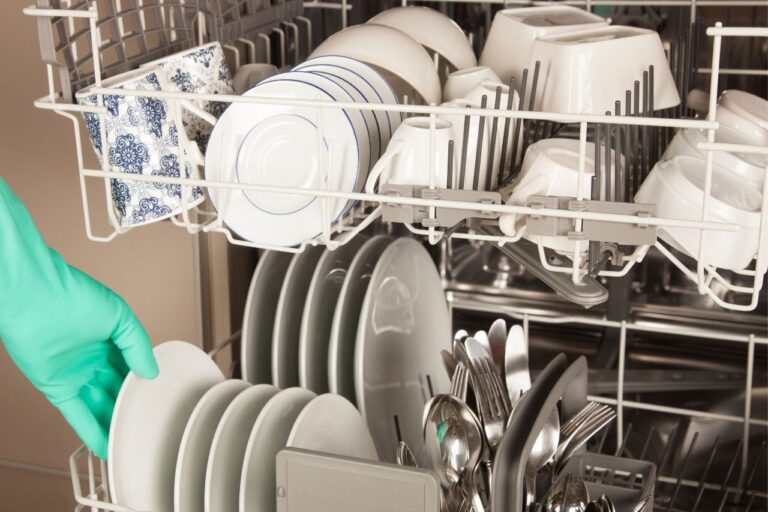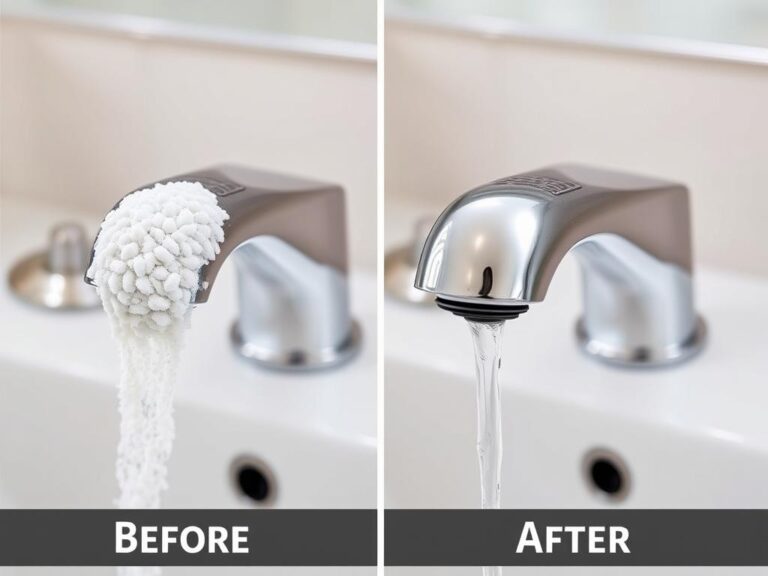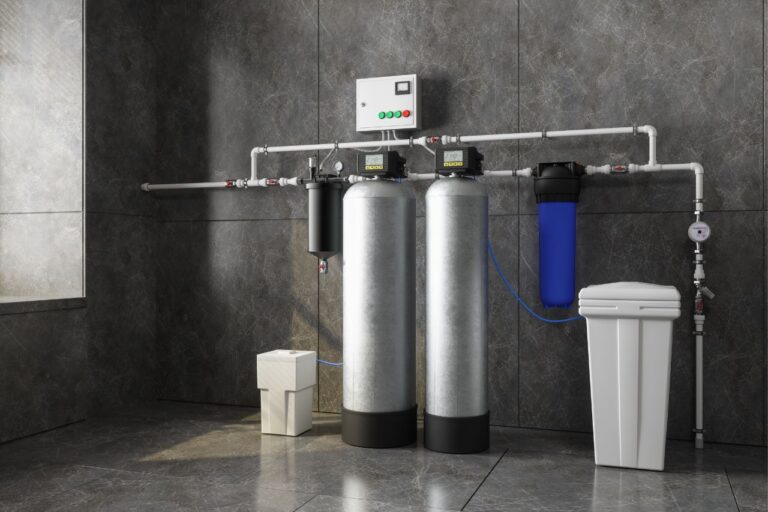9 Signs You Might Need a Water Softener
Is hard water silently damaging your home? Many homeowners are unaware of the issues caused by hard water until they notice significant problems. Water hardness is measured in milligrams per liter (mg/L) of calcium carbonate, and high mineral content can lead to various household issues.
Hard water can cause problems ranging from clogged pipes to inefficient appliances. Understanding the signs of hard water is crucial for maintaining a healthy and efficient home.
Recognizing the need for improving water quality is the first step towards a solution. A water softener can mitigate the effects of hard water, leading to a more comfortable living environment.
Key Takeaways
- Hard water can cause significant household problems.
- Understanding water hardness is crucial for home maintenance.
- A water softener can improve water quality.
- Recognizing the signs of hard water is essential.
- Improving water quality enhances the living environment.
Understanding Hard Water and Its Impact on Your Home
The quality of water in your home can significantly impact your daily life and appliances. Hard water, in particular, is a common issue that many homeowners face without even realizing it.
What Causes Hard Water?
Hard water is caused by high levels of dissolved minerals, primarily calcium and magnesium, which are absorbed as water travels through rocks and soil. This natural process can lead to a buildup of these minerals in your home’s water supply.
The Science Behind Water Hardness Levels
Water hardness is typically measured in terms of the amount of calcium carbonate present in the water. The City of Calgary, for example, classifies water hardness on a scale from soft to very hard based on the mg/L of calcium carbonate. Understanding this scale can help you determine the hardness of your water.
How Hard Water Affects Daily Life
Hard water can have a significant impact on your daily life, from leaving spots on dishes and glassware to damaging your plumbing fixtures and appliances over time. It can also affect your skin and hair, making them feel dry and rough after showering. Moreover, hard water can reduce the efficiency and lifespan of your water heater and other appliances.
How to Identify Hard Water in Your Home
Detecting hard water involves understanding its characteristics and using the right testing methods. Hard water is primarily identified by its high mineral content, particularly calcium and magnesium.
DIY Water Hardness Tests
A simple way to test for hard water is by performing a soap test. Fill a bottle with tap water, add a few drops of soap, and shake it. If the water produces a rich lather, it’s likely soft. However, if it doesn’t lather well and instead forms a scum, it could be hard water. You can also look out for visible signs like scale buildup on faucets and appliances.
Professional Water Testing Options
For a more accurate analysis, consider hiring a professional to test your water. They use specialized equipment to measure the exact levels of minerals in your water, providing a clear indication of its hardness.
Understanding Water Hardness Measurements
Water hardness is typically measured in milligrams per liter (mg/L) of calcium carbonate. Levels below 60 mg/L are considered soft, while levels above 120 mg/L are classified as hard. Understanding these measurements helps you determine the best course of action for your water treatment needs.
9 Signs You Might Need a Water Softener
The presence of hard water can lead to numerous issues, but recognizing the signs is the first step to resolving them. Hard water contains high levels of minerals such as calcium and magnesium, which can cause a variety of problems in your home.
Overview of Common Hard Water Indicators
Common indicators of hard water include spotty dishes, scale buildup on faucets, and dry skin. These signs are not just annoying; they can also lead to long-term damage to your appliances and plumbing system. Other signs may include stiff, dull laundry, frequent appliance breakdowns, and increasing water bills.
The Importance of Early Detection
Early detection of hard water is crucial to prevent damage to your home. By recognizing the signs early, you can take steps to mitigate the effects of hard water, such as installing a water softener. The benefits of a water softener include protecting your appliances, improving skin health, and reducing energy consumption.
Sign #1: Spotty Dishes and Glassware
Spotty dishes and glassware are often an indication of hard water, caused by the high mineral content in the water. When water is high in minerals such as calcium and magnesium, it can leave behind unsightly spots or residue on dishes and glassware after washing.
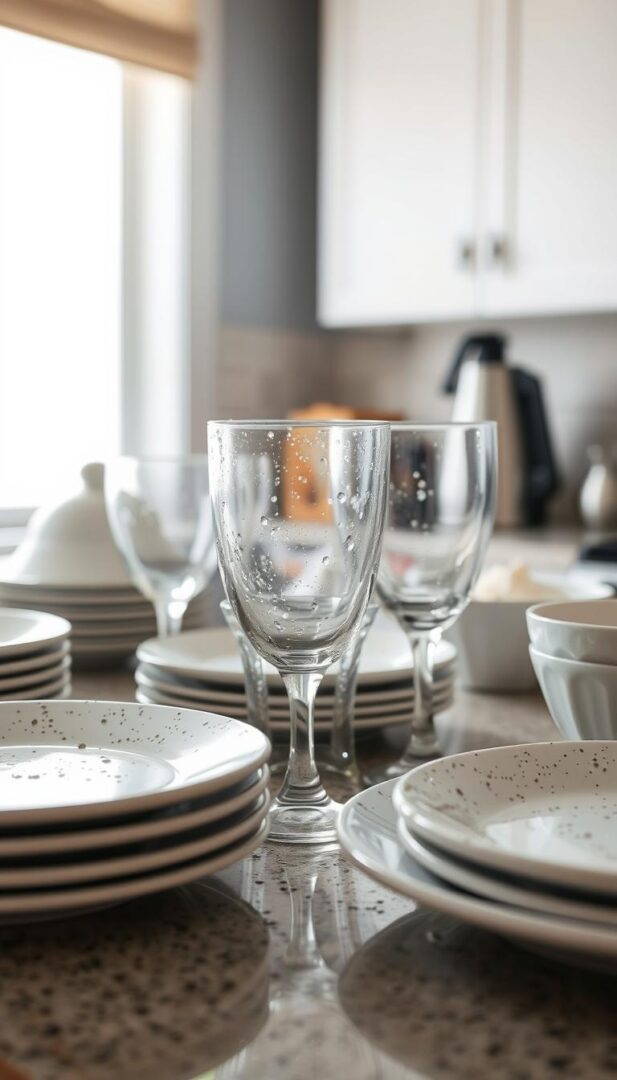
Why Hard Water Leaves Spots
Hard water contains high levels of dissolved minerals, particularly calcium and magnesium. When water evaporates from the surface of dishes and glassware, these minerals are left behind, forming spots or a cloudy residue. This phenomenon is more pronounced when washing in hot water, as heat accelerates the precipitation of these minerals.
How to Differentiate Between Detergent Issues and Hard Water
It’s essential to distinguish between spots caused by hard water and those resulting from detergent issues. Spots from hard water are typically white or cloudy and are more pronounced on glassware. In contrast, detergent residue tends to be more streaky or filmy. To confirm whether the issue is hard water, try using a rinse aid or a water softener.
Impact on Dishwasher Performance
Hard water not only affects the appearance of dishes but also impacts the performance and longevity of your dishwasher. Mineral buildup can clog dishwasher filters and reduce the efficiency of heating elements, leading to increased energy consumption and potentially shorter appliance lifespan. Regular maintenance and the use of a water softener can help mitigate these effects.
As noted by water quality experts, “Using a water softener can significantly reduce the spotting on dishes and glassware, improving the overall performance of your dishwasher.”
Sign #2: Scale Buildup on Faucets and Fixtures
Scale buildup on faucets and fixtures is a clear indicator of hard water issues in your home. This visible sign can lead to long-term damage if not addressed.
Identifying Mineral Deposits
Mineral deposits, often seen as white or off-white residue, can be identified on various household fixtures. Regular cleaning can help manage the issue, but it’s essential to understand that this is a symptom of a larger problem.
Common Areas Affected by Limescale
Limescale buildup commonly affects areas such as shower heads, sinks, and toilets. These areas are prone to mineral deposits due to constant water flow.
Long-term Damage to Plumbing Fixtures
If left unchecked, scale buildup can lead to significant damage to plumbing fixtures, reducing their lifespan and efficiency. Early detection is key to preventing costly repairs.
Sign #3: Dry, Itchy Skin After Showering
Showering in hard water can strip your skin of its natural oils, leading to dryness and itchiness. This is because hard water contains high levels of minerals such as calcium and magnesium, which can disrupt the skin’s natural barrier.
How Hard Water Affects Skin Health
Hard water affects skin health by leaving mineral deposits on the skin’s surface. These deposits can clog pores and prevent the skin from retaining moisture, leading to dryness and irritation. Furthermore, the high pH level of hard water can disrupt the skin’s natural pH balance, exacerbating skin conditions.
The Connection Between Hard Water and Skin Conditions
There’s a significant connection between hard water and various skin conditions, including eczema and dermatitis. The minerals in hard water can irritate the skin, trigger flare-ups, and make these conditions more challenging to manage. People with pre-existing skin conditions should be particularly cautious when showering in hard water.
Temporary Solutions for Skin Protection
While addressing the root cause of hard water is essential, there are temporary solutions to protect your skin. Using a moisturizer immediately after showering can help lock in moisture. Additionally, using a water softener or a shower filter can reduce the mineral content in the water, providing relief for dry, itchy skin.
| Solution | Description | Benefits |
|---|---|---|
| Moisturizer | Apply immediately after showering | Locks in moisture, soothes dry skin |
| Water Softener | Reduces mineral content in water | Reduces dryness, irritation, and skin conditions |
| Shower Filter | Filters out minerals and impurities | Provides relief for dry, itchy skin, improves skin health |
Sign #4: Stiff, Dull Laundry and Fading Colors
One of the telltale signs of hard water is its effect on your laundry, making it stiff, dull, and prone to fading. The minerals present in hard water, particularly calcium and magnesium, can affect the quality of your clothes.
The Effect of Minerals on Fabric
The high mineral content in hard water can lead to the buildup of residue on fabrics, causing them to become stiff and rough. This mineral deposit can also reduce the softness of towels and clothing, making them less comfortable to wear.
Why Detergents Don’t Work as Well in Hard Water
Detergents are less effective in hard water because the minerals react with the detergent, reducing its ability to clean properly. This reaction can lead to the formation of soap scum, which can leave residue on clothes and in washing machines.
Calculating the Hidden Costs in Laundry Products
The inefficiency of detergents in hard water can result in the need for more detergent to achieve the same level of cleanliness, increasing laundry costs. Additionally, the premature wear and tear on clothing due to mineral buildup can lead to more frequent replacements.
Sign #5: Frequent Appliance Breakdowns
One of the most telling signs that you need a water softener is the frequent failure of your appliances. Hard water can cause significant damage to your home’s appliances, particularly those that use hot water.
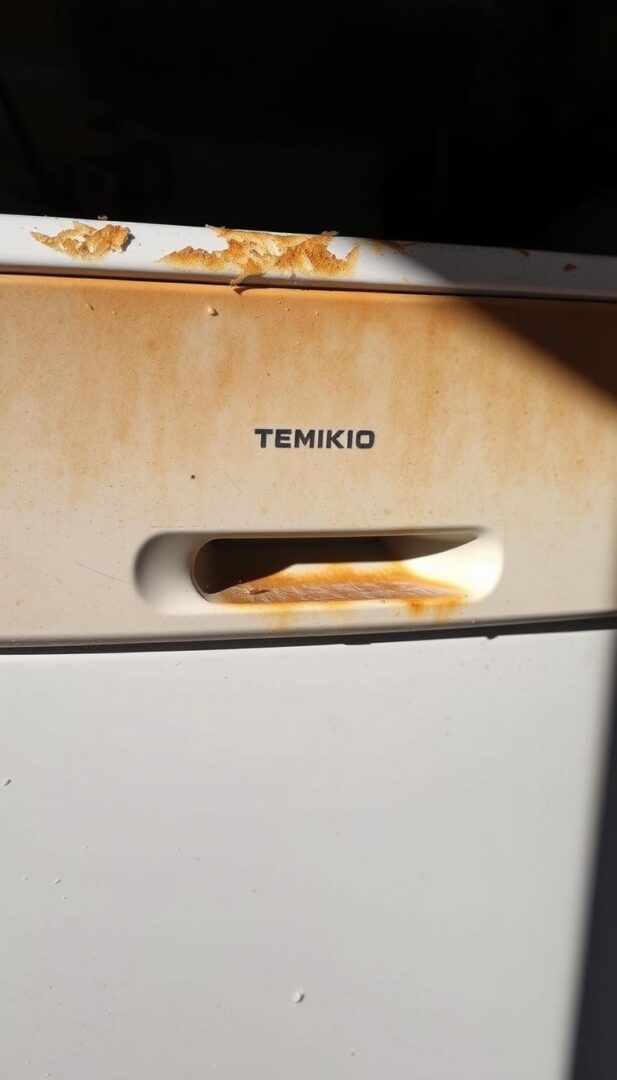
Damage to Water Heaters
Water heaters are especially vulnerable to the effects of hard water. The minerals in hard water, such as calcium and magnesium, can cause scale buildup inside the water heater, reducing its efficiency and lifespan. This scale buildup can lead to increased energy bills and costly repairs.
Impact on Coffee Makers and Small Appliances
Coffee makers and other small appliances that use water are also affected by hard water. Scale buildup can clog the internal mechanisms, reducing performance and eventually causing the appliance to fail. Regular cleaning can help, but it’s often not enough to prevent damage entirely.
Reduced Appliance Lifespan and Efficiency
The overall effect of hard water on appliances is a reduction in their lifespan and efficiency. By causing scale buildup and damaging internal components, hard water can lead to premature appliance failure. This not only results in costly repairs or replacements but also increases energy consumption.
Solutions for hard water problems include installing a water softener, which can mitigate the damage caused by hard water. A water softener installation can help extend the life of your appliances, reduce energy bills, and prevent costly repairs.
- Reduces scale buildup in appliances
- Extends appliance lifespan
- Lowers energy consumption
- Prevents costly repairs or replacements
By addressing hard water issues, homeowners can protect their appliances and enjoy long-term savings.
Sign #6: Increasing Water Bills
One of the often-overlooked signs of hard water is an increase in your water bills. If you’ve noticed a surge in your water expenses without a corresponding increase in usage, it might be time to investigate the quality of your water.
How Scale Buildup Affects Water Flow
Scale buildup from hard water can significantly restrict water flow in your pipes. As minerals deposit on the inner surfaces of your plumbing, the diameter of the pipes narrows, making it harder for water to flow through. This reduction in water flow means your appliances and faucets have to work harder, potentially leading to increased energy consumption.
Energy Consumption and Hard Water Correlation
The correlation between hard water and energy consumption is substantial. When scale builds up in water heaters, for instance, it acts as an insulator, reducing the heater’s efficiency. This means it takes more energy to heat the same amount of water, directly impacting your utility bills.
Calculating Your Potential Savings
By installing a water softener, you can potentially save on your water and energy bills. Soft water reduces the strain on your plumbing and appliances, leading to improved efficiency and longer lifespan. The savings can be significant, making the investment in a water softener a practical decision for improving water quality and reducing household expenses.
Sign #7: Soap Scum and Bathtub Ring
Soap scum and bathtub ring are not just unsightly; they’re also indicators of hard water in your home. The combination of soap and hard water creates a stubborn residue that can be difficult to clean.
The Chemistry Behind Soap and Hard Water
When soap interacts with the minerals in hard water, it forms a sticky film known as soap scum. This reaction is due to the presence of calcium and magnesium ions in hard water, which react with the fatty acids in soap to form insoluble compounds.
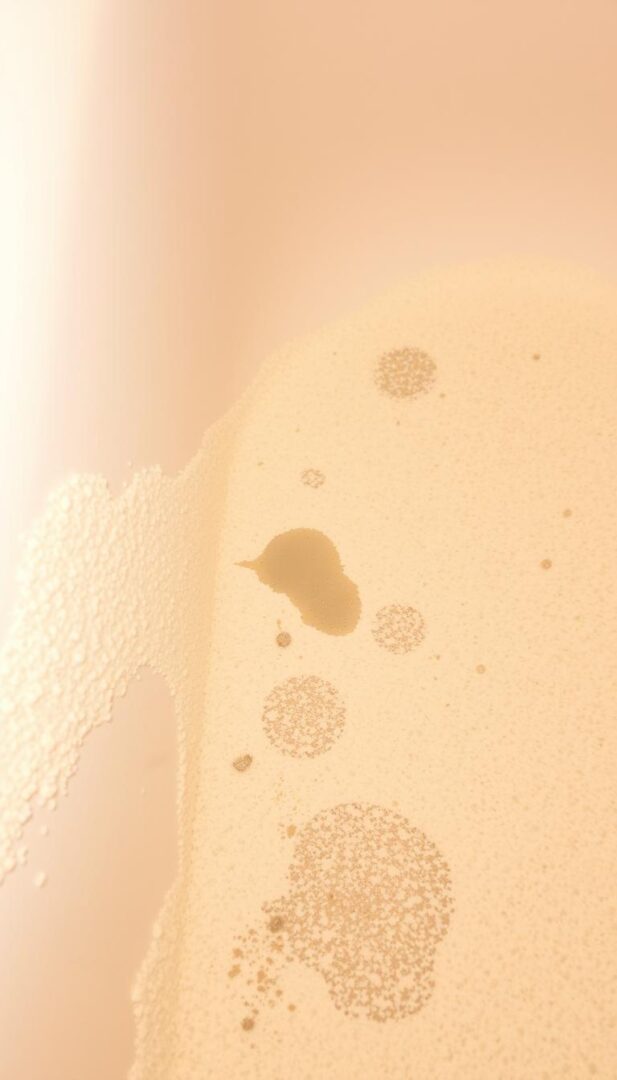
Cleaning Challenges in Hard Water Homes
Soap scum buildup requires regular scrubbing, often with harsh chemicals, to remove. This not only wastes time but also potentially damages surfaces over time. Some common cleaning challenges include:
- Stubborn stains on bathtubs and showers
- Difficulty in removing soap scum from glass surfaces
- Increased wear on cleaning tools and surfaces
Health Implications of Soap Scum Buildup
Beyond the cleaning challenges, soap scum buildup can have health implications. The moist environment created by soap scum can foster the growth of mold and mildew, potentially exacerbating respiratory issues like asthma. Furthermore, the skin can be irritated by the residue left behind by soap scum.
Understanding the causes and effects of soap scum and bathtub ring is crucial for maintaining a clean and healthy home environment. By addressing the root issue of hard water, homeowners can reduce the occurrence of these problems.
Sign #8: Poor Water Pressure Throughout Your Home
One of the most telling signs of hard water is poor water pressure throughout your home. If you’re experiencing a noticeable drop in water pressure, it could be a sign that mineral buildup is restricting water flow.
Minerals in hard water, such as calcium and magnesium, can cause scale buildup in your pipes. Over time, this buildup can significantly reduce the diameter of your pipes, leading to decreased water pressure.
How Mineral Buildup Restricts Water Flow
Mineral buildup from hard water can restrict water flow in several ways:
- Minerals precipitate out of the water and form hard scale deposits on the inside of pipes.
- These deposits gradually narrow the pipe diameter, reducing water flow.
- Scale buildup can also cause pipes to become clogged or blocked, further reducing water pressure.
Identifying Hard Water vs. Other Pressure Issues
It’s essential to determine whether poor water pressure is due to hard water or other factors. Other causes can include:
- Clogged aerators or filters.
- Kinked or blocked hoses.
- Malfunctioning pressure regulators.
To identify if hard water is the cause, look for other signs such as scale buildup on faucets and appliances.
Progressive Nature of Pressure Problems
Pressure problems caused by hard water are progressive and can worsen over time if not addressed. As scale buildup continues, water pressure will continue to drop, potentially leading to more severe issues like pipe bursts or appliance failures.
| Signs | Possible Cause | Action |
|---|---|---|
| Poor water pressure, scale buildup | Hard water | Test water hardness, consider water softener |
| Intermittent pressure, clogged aerators | Clogged filters or kinked hoses | Clean or replace filters, inspect hoses |
By understanding the signs of hard water and how to test for it, homeowners can take proactive steps to mitigate its effects and maintain optimal water pressure throughout their homes.
Sign #9: Unpleasant Taste or Smell in Your Water
One of the often-overlooked signs of hard water is its impact on the taste and smell of your water. Hard water can contain high levels of minerals such as calcium and magnesium, which can sometimes cause unpleasant tastes or odors.
Common Taste Issues Related to Hard Water
Hard water can lead to a metallic or bitter taste due to the presence of minerals. This can be particularly noticeable in drinking water and beverages made with water, such as tea or coffee.
Distinguishing Between Hard Water and Other Water Quality Problems
It’s crucial to distinguish between taste issues caused by hard water and those caused by other water quality problems. For instance, sulfur or iron contamination can also lead to unpleasant odors or tastes. Testing your water can help identify the root cause.
Impact on Cooking and Beverages
The taste and smell of water can significantly affect the quality of cooked food and beverages. Hard water can alter the flavor profile of dishes and drinks, potentially leading to an undesirable taste experience.
Using a water softener can mitigate these issues by reducing the mineral content in the water, thereby improving its taste and smell. This can enhance the overall quality of your drinking water, cooking, and beverages, making it a worthwhile consideration for those experiencing hard water issues.
Water Softener Solutions: Types, Costs, and Installation
When it comes to addressing hard water issues, homeowners have several water softener solutions to consider. The choice of water softener depends on various factors, including household size, water usage, and personal preferences.
Salt-Based Ion Exchange Systems
Salt-based ion exchange systems are among the most common types of water softeners. They work by replacing calcium and magnesium ions with sodium or potassium ions, effectively softening the water. These systems are known for their effectiveness but require regular maintenance, including salt replenishment and occasional cleaning.
Salt-Free Water Conditioners
Salt-free water conditioners are an alternative for those who prefer not to use salt or want to reduce their sodium intake. These systems don’t remove minerals but alter their properties so they don’t stick to surfaces, reducing scale buildup. They’re a good option for households looking for a low-maintenance solution.
Dual-Tank Water Softeners
Dual-tank water softeners are ideal for larger households or homes with high water demand. They consist of two tanks that work together to provide a continuous supply of soft water. One tank regenerates while the other is in use, ensuring that soft water is always available.
Installation Considerations and Maintenance Requirements
Proper installation and regular maintenance are crucial for the optimal performance of water softeners. Installation should be done by a professional to ensure it’s done correctly and safely. Maintenance tasks include checking salt levels, cleaning the brine tank, and occasionally replacing parts.
| Type of Water Softener | Maintenance Level | Effectiveness | Cost |
|---|---|---|---|
| Salt-Based Ion Exchange | High | High | Moderate to High |
| Salt-Free Water Conditioners | Low | Moderate | Moderate |
| Dual-Tank Water Softeners | High | High | High |
Choosing the right water softener involves considering factors such as household needs, budget, and preferred maintenance level. By understanding the different types of water softeners and their characteristics, homeowners can make an informed decision that improves their water quality and overall household efficiency.
Conclusion: Making the Right Decision for Your Home’s Water Quality
By understanding the 9 Signs You Might Need a Water Softener, homeowners can take the first step towards improving their water quality. Hard water can cause a range of issues, from spotty dishes and scale buildup to dry skin and appliance damage.
Recognizing these signs early on can help prevent more severe problems from developing. Installing a water softener can be a simple and effective solution to these issues, leading to softer skin, cleaner clothes, and longer-lasting appliances.
Improving water quality not only enhances the comfort and convenience of your home but also has long-term benefits for your plumbing system and appliances. By making an informed decision about your water quality, you can enjoy a healthier, more efficient home.




